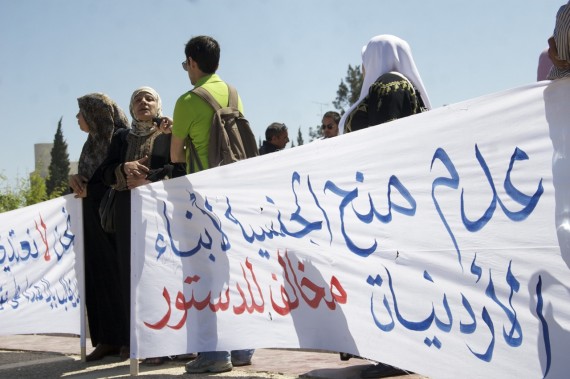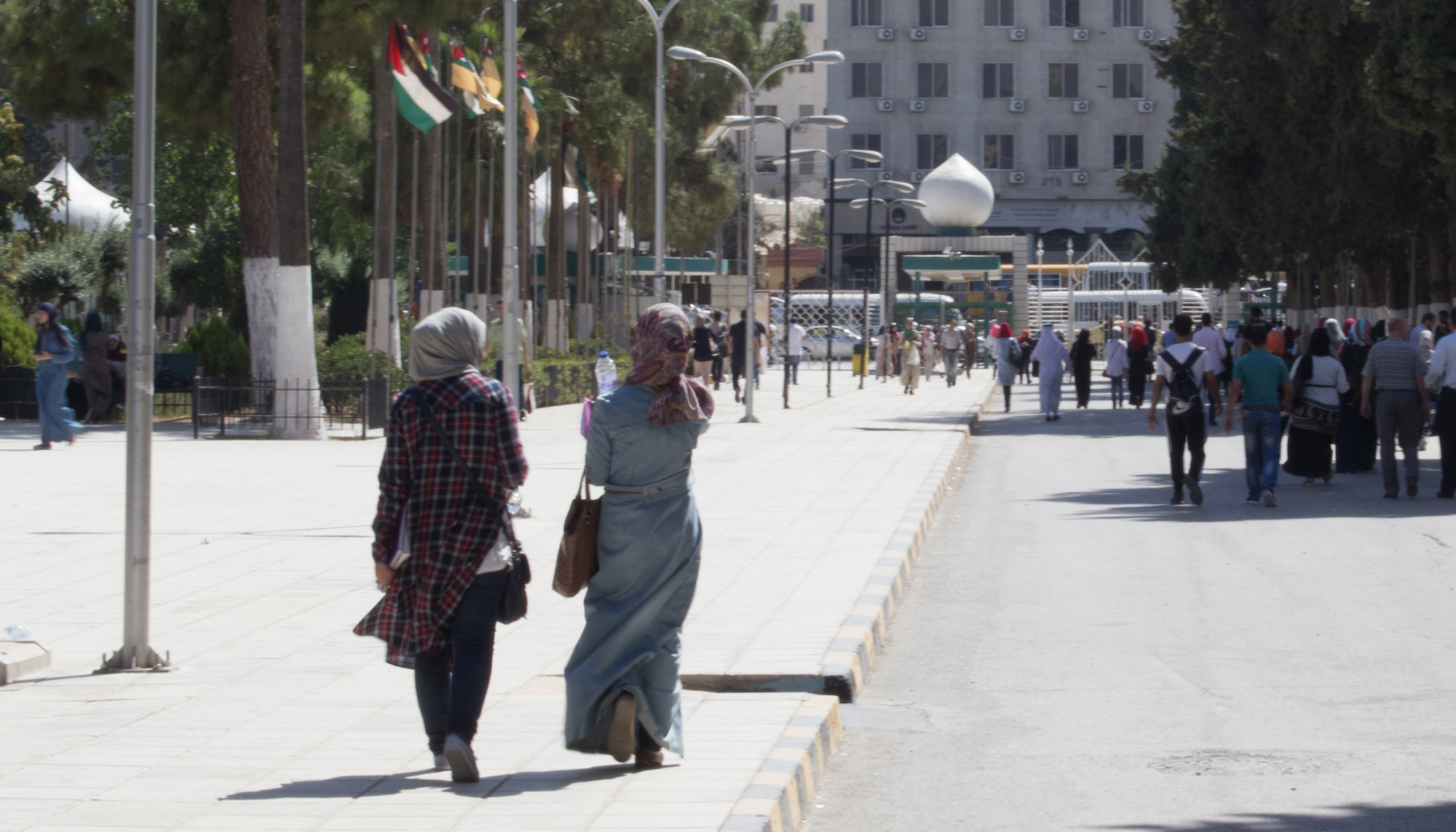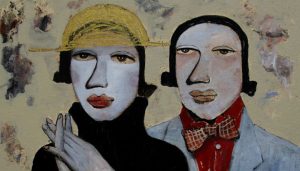By Ola Dudin
Amidst all the protests that took over Jordan’s capital and governorates soon after the Prime Minister announced the rise of fuel prices last Tuesday evening, very little media coverage has been given to the protest that took place on Thursday in front of the Prime Ministry. Protesters demanded that the PM follow through on the remarks he made at the opening of a major international Human Rights conference in Amman earlier this month that “Jordan is committed to the full implementation of CEDAW” (the Convention on the Elimination of All Forms of Discrimination Against Women), and that the Kingdom’s past reservations on the convention will be reconsidered.
In 2009, Jordan lifted its reservations on Article 15, paragraph 4 of CEDAW, which relates to women’s freedom of mobility and freedom to choose their own residence. Until today, Jordan still has reservations on Article 9, paragraph 2 that grants women “equal rights with men with respect to the nationality of their children”, as well as Article 16, paragraph 1 (c), (d) and (g) that relates to equal rights upon marriage dissolution.
The positive step taken in 2009 in lifting Jordan’s reservation on Article 15 has stirred a lot of controversy, with the Islamic Action Front (IAF) openly opposing the government’s decision and calling on it to withdraw from CEDAW under the claim that lifting the government’s reservations on Article 15 and agreeing to such provisions threatens the Jordanian society and its “family values”, thus causing “a wide range of social problems”. Not only that, but according to a Jordan Times article published last week, the IAF previously warned that “families in Jordan face the threat of total collapse under CEDAW.” According to the Jordan NGO Shadow report that was submitted to the CEDAW Committee in Geneva and prepared by the Jordanian Shadow Report Coalition led by the Jordanian Women’s Union, it was reported that upon holding focus groups to discuss the convention with various stakeholders, the “Juristic Islamic Rulings Department (Al Ifta’), a public department, declared that it opposes the convention because it contradicts Islam, and Jordan must renounce being a party to it.”
For starters, it is clear that the government and its leadership have not been able to raise awareness on the convention and the importance of implementing it to eliminate different forms of discrimination against women. Second, while the Jordanian society is considered mainly conservative and religious, passing constitutional or civil laws to combat discrimination against women and criminalize offenders against women’s rights should not be based on religious or cultural codes or stereotypes that may be biased to gender, class or social status. A civil state should have a constitution that preserves its citizens’ equal rights – otherwise, social, economic and political rifts among different groups and genders will widen.
While Jordan has positively lifted its reservation on Article15, paragraph 4 in 2009, and regardless of the opposition it has received, it still keeps its reservations on the other two aforementioned provisions. This is an obvious discrimination against women by the Jordanian law and mainly a violation of their civil right to pass their nationality to their children.
Among many other issues in Jordan that deal with violence against women include women’s labour rights and women’s economic and political participation. This has been a long-lived debate and battle between Jordan’s civil society, activists, human rights advocates, lawyers and other influencers, who are either ‘for’ or ‘against’ any government moves to amend the Jordanian constitution to include in Article 6 of the constitution the word “sex” in order to ensure that all Jordanian citizens have equal rights based on their gender as well. Such an amendment would subsequently grant Jordanian female citizens married to non-Jordanians the right to pass their Jordanian citizenship to their children.
Currently, Jordanian women married to non-Jordanians cannot pass their citizenship to their children, while on the other hand, by law, Jordanian men married to non-Jordanian women can pass their citizenship to their children easily. This jeopardizes the livelihood and survival of many families, where the children living in Jordan do not practice their full rights. On a broader level, this situation also affects the Jordanian society’s livelihood and economic prospects in having many members of its society, of different generations, which have full mental and physical capacity, unable to fully contribute and participate in the development of their ecosystem and country.
Moreover, the current nationality law that discriminates against women openly contradicts Article 1 of the convention that states: “the term “discrimination against women” shall mean any distinction, exclusion or restriction made on the basis of sex which has the effect or purpose of impairing or nullifying the recognition, enjoyment or exercise by women”. This is the core of CEDAW and given that Jordan still discriminates against women in passing their nationality to their children, the Kingdom’s position in agreeing on the convention with reservations should be critically questioned by the CEDAW Committee.
Jordan civil society and women unions have worked hard over the years to address women’s rights and combat discrimination against women either through field work or by advocating and pressuring for constitutional amendments. The Arab uprising throughout the region has collectively called for, among other things, having civil states where all citizens stand equal before the constitution regardless of religion, status, ethnicity or sex; the only contract citizens will accept along with a democratically elected government and leader.
Jordan’s protests over the past two years have called for various constitutional changes. Numerous activists, human rights advocates and lawyers have asked the assigned constitutional amendments committee (which had no female members) to amend the constitution to ensure no discrimination against women. This has not been achieved successfully yet, and the pressure and lobbying to get there should not stop.
There has been a lot of rage after the Prime Minister’s unpopular decision to raise fuel prices last week, and surely, CEDAW is not the priority for his government right now. But let us hope that Ensour was serious with his remarks earlier this month that Jordan will indeed reconsider its reservations to the other CEDAW provisions, whether it is during these next few weeks or next year with the new parliamentary elections. This will bring hope for many Jordanian women and families, granting them their full rights and, hopefully, a decent living as well.











